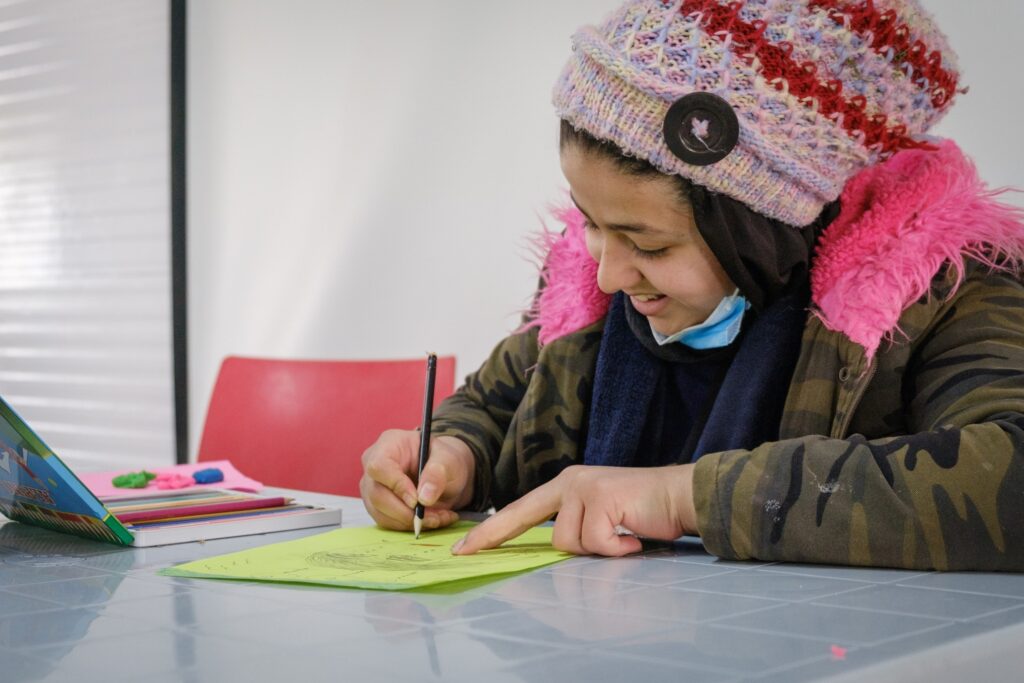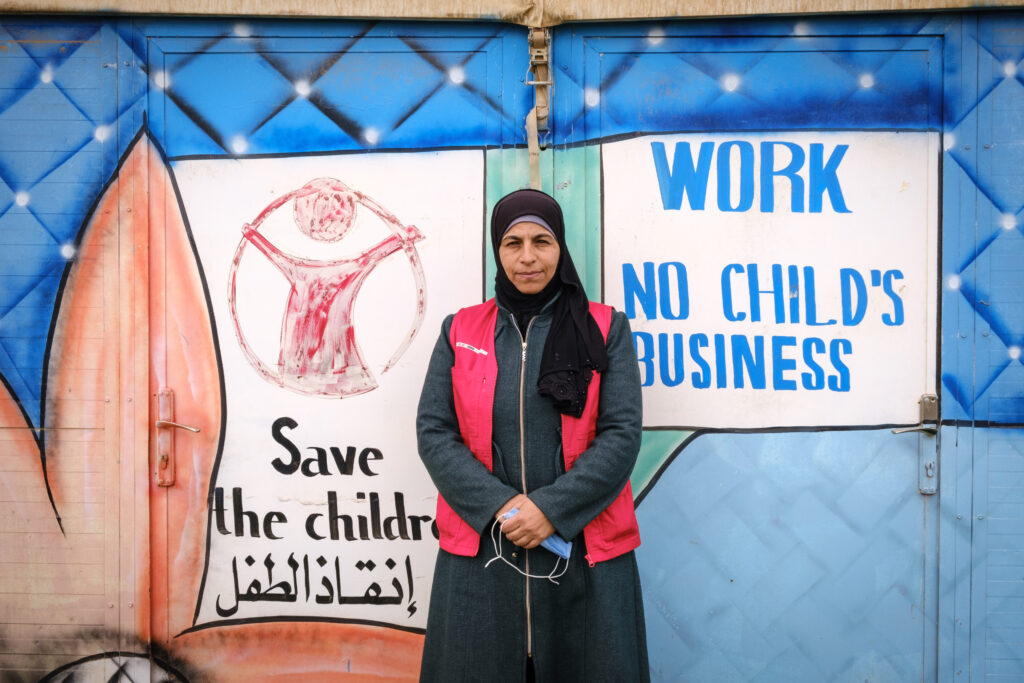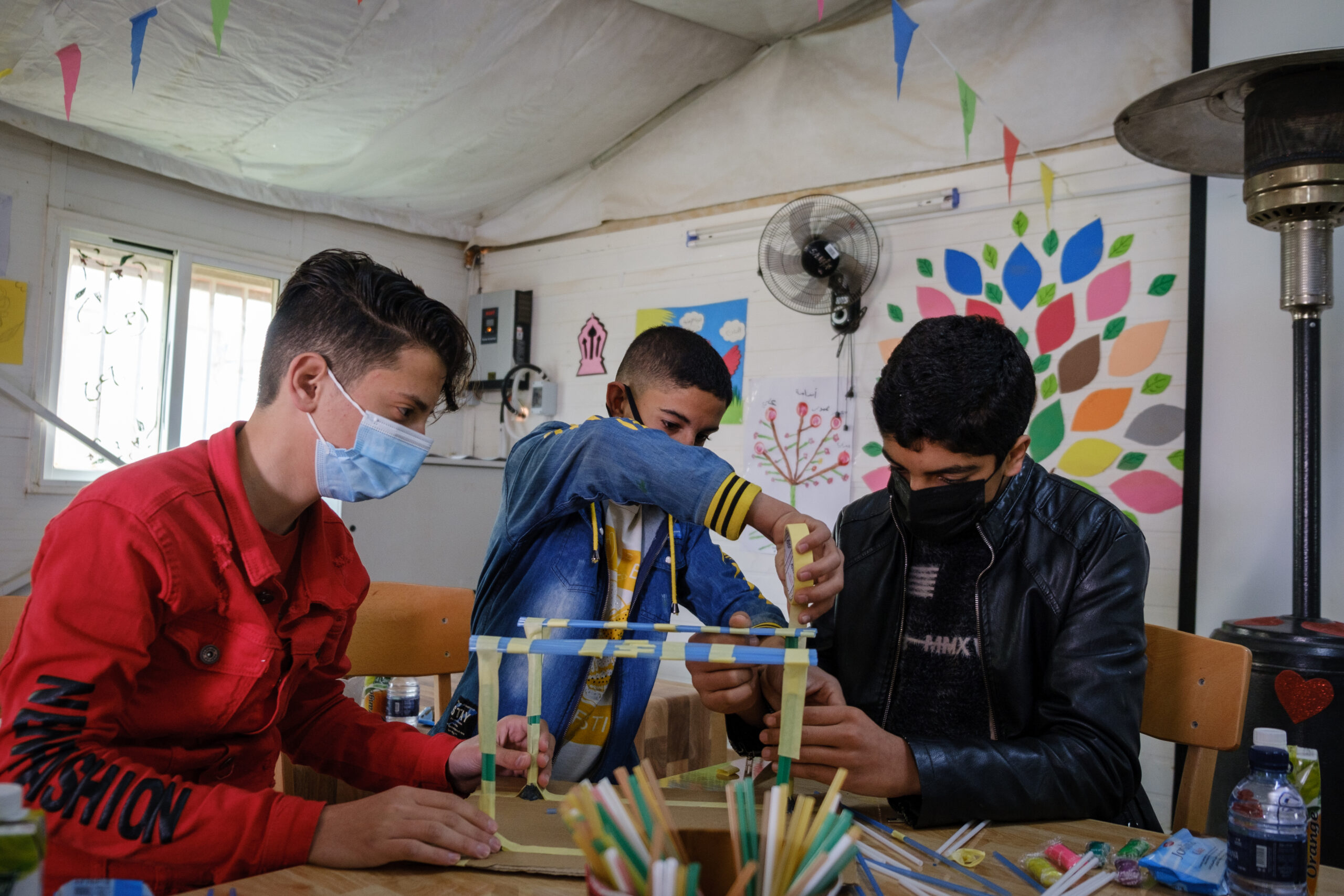Changes
Before our programme started, more than 60 per cent of the children in East Ammam and Za’atari camp were engaged in child labour or at risk of child labour. Many were out of school and working more than eight hours a day in family businesses, at home, in beauty centres, supermarkets, agriculture or factories. They had no safe spaces where they could learn, play and develop their talents.
Over the course of the programme, work with the national government led to improved national policies, programmes and legislation on child labour. Supporting women in communities has improved their economic and social position in their families and communities. This was an important strategy that led to improved access to education and other services for children.
Awareness of the importance of education and children’s rights has increased in the project areas, leading to and contributing to many positive outcomes. Children have better access to education, child protection systems are strengthened, legislation has improved, there is more cooperation between all stakeholders and norms are slowly changing in communities.
After several years of dedicated work in the programme’s priority areas, more than half of the children who previously worked are no longer engaged in child labour or have reduced their working hours to a minimum. The efforts of our partners have had, and will continue to have, a direct impact on the well-being of children in East Ammam and Za’atari Camp.
Changes and results at the community level
During the programme period, our work increased community knowledge about child labour and education, and helped parents and caregivers, including many women and mothers, improve their livelihoods and increase family income. Our work also improved access to essential services like education and healthcare for families in East Amman and Za’atari camp.
Positive parenting sessions contribute to norms change
Parents are crucial in getting children out of child labour and back into school. So, to ensure that children in our target areas have a safe home environment, we held positive parenting sessions.
The sessions provided caregivers with positive parenting ideas and tools to help them manage stress, take care of themselves and understand children’s rights, child development and relationships. The sessions, aimed primarily at mothers, directly addressed social and gender norms that are among the root causes of child labour. We informed mothers of the crucial role education plays in their children’s development and explained how working without an education negatively impacts this.
We reached more than 340 parents in total. The vast majority were women. These sessions have led to a clear shift in thinking among parents in East Amman and Za’atari Camp, with a stronger conviction that education is central to their children’s future. They now support their children’s return to school.
Mothers and caregivers now have the knowledge and skills they need to provide a safer home environment for their children. Parents are using positive parenting methods with their children, replacing physical and emotional violence with positive, nurturing approaches.
To underline the success and popularity of the positive parenting sessions, some mothers have actively shared information about positive parenting, the importance of education and the risks of child labour with their relatives and neighbours. They are encouraging other mothers to come to the centres and benefit from services such as the positive parenting sessions.
Access to quality services for children through proper case management
Specialist case managers assessed families’ situations and helped them address the root causes of child labour, including poverty and lack of access to education. When parents and caregivers have decent income opportunities, child labour is reduced. We have stopped children who were working and exposed to sexual violence from working and returned them to school by linking parents and caregivers to employment opportunities. Our Alliance partners provided children involved in child labour and their caregivers with the quality services they needed, including education and protection, in our programme areas.
In partnership with the Hashemite Fund for Human Development, we successfully provided case management services to 340 children at risk of child labour. The case management team effectively referred 792 individuals for a range of essential services, including education, training, financial assistance, employment opportunities, mental health support, healthcare, protection and other vital services. These services were provided by Save the Children Jordan and other organisations, including the United Nations High Commissioner for Refugees (UNHCR), King Hussein Foundation, Mercy Corps, Luminus College and Al Own CBO. Through case management assessments and referrals, 3,400 children in Zaatari and East Amman learned basic life skills, including socialisation, stress reduction and communication, at Save the Children Jordan’s Talent Hubs.
Of the 340 children who received case management services, 34 returned to school. A total of 212 children stopped working or reduced their working hours.
Health care services
Lack of access to health care for parents and caregivers is one of the reasons why some children work. When parents can’t work because of health problems, children become the family’s breadwinners. But the stark reality is that even when their children are working, these families can’t afford healthcare. These families must have access to affordable or free health care. Improved health for caregivers will lift children out of child labour.
We have developed a network of private health facilities in our project areas that recognises the link between child labour and lack of access to health care. Our comprehensive case management has successfully linked child labourers and their families to affordable, and in some cases free, health services in this network, alleviating a financial burden. Our case management services also connected a number of refugee and minority children, who lacked the necessary documentation to access health services, to the health care they needed.
Our case management committees reached 22 families of children involved in the worst forms of child labour and in need of health care. Referrals to health care providers reduced the burden of health care costs for these families. This led to children being removed from child labour by their parents, as they were no longer needed to contribute to the family income.
With better access to health services, parents and caregivers can now afford to take care of their own health and that of their children. This has also prevented further harm to children involved in child labour who have suffered work-related injuries and poor health.
Birth registration services
Access to education and health care is important in the fight against child labour. In Jordan, only those who are citizens, refugees or residents are entitled to access these services. In Za’atari refugee camp, a significant number of children are undocumented and therefore denied access to education, health care and other services.
UNICEF’s case management and work with relevant government institutions resulted in 68 children aged 1-17, including 41 child labourers, receiving birth certificates. After a lengthy process, 13 marriages between refugee parents were successfully registered, resulting in proper documentation for them and their children.
Birth certificates are vital for helping refugee children access education and healthcare and to move away from child labour. The government will help vulnerable unregistered children obtain birth certificates, thanks to our partners and case management efforts.
Supported Child Protection Committees leads to increased awareness
In 2023, our partners established four Child Protection Committees (CPCs) in East Amman and Za’atari camp. We trained 42 people in labour law, children’s rights, community projects and gender equality. These individuals are now equipped to raise awareness in their communities and fight child labour.
The CPCs organised and held awareness-raising activities and sessions on child labour and education. They held more than 16 awareness sessions, reaching 181 children and 131 community members. The CPCs in East Amman, Za’atari camp and Za’atari village also established new partnerships with community-based organisations and government agencies, which enabled them to reach more communities. These partnerships allowed the committees to train and provide information to 336 families, children, employers and caregivers.
Prior to the WNCB programme, CPC members and community members lacked knowledge of labour law, child protection, safe referrals and initiatives. We invested in building CPC members’ knowledge of child rights, labour law, child protection and safe referrals. They can now better share their knowledge with community members and engage them in tackling child labour. This investment in knowledge building will also help to sustain local partnerships, awareness-raising and referral efforts after the WNCB programme ends.
Families are economically empowered
Many households in our programme areas are unable to access the labour market because they lack essential skills, experience and documentation. This forces many families to send their children out to work to earn a living. We therefore focused on helping families access (better) jobs and generate income.
Our partners provided economic empowerment support to families with children engaged in child labour, with a particular focus on women. We successfully increased access to jobs and improved livelihoods by providing personal development training, vocational training and business start-up kits to more than 80 households. Case managers also effectively referred around 75 households to vocational training on specific topics, leading to more decent employment opportunities. We also gave young people the tools they needed to access better livelihoods. A total of 57 young people between the ages of 16 and 17 participated in personal development training in life skills, business ethics and business development.
Families who have participated in our vocational and personal development training have become financially and technically empowered. They are now less dependent on their children’s work to support them.
Building on the success of our personal development and vocational training, Save the Children Jordan has developed a gig platform (an online marketplace) that connects freelancers with clients. This platform, called Mofeed, expands a freelancer’s client reach beyond family, friends and neighbours. The gig platform ensures that improvements in livelihoods and family income are sustainable for people who are self-employed, even after the programme ends.
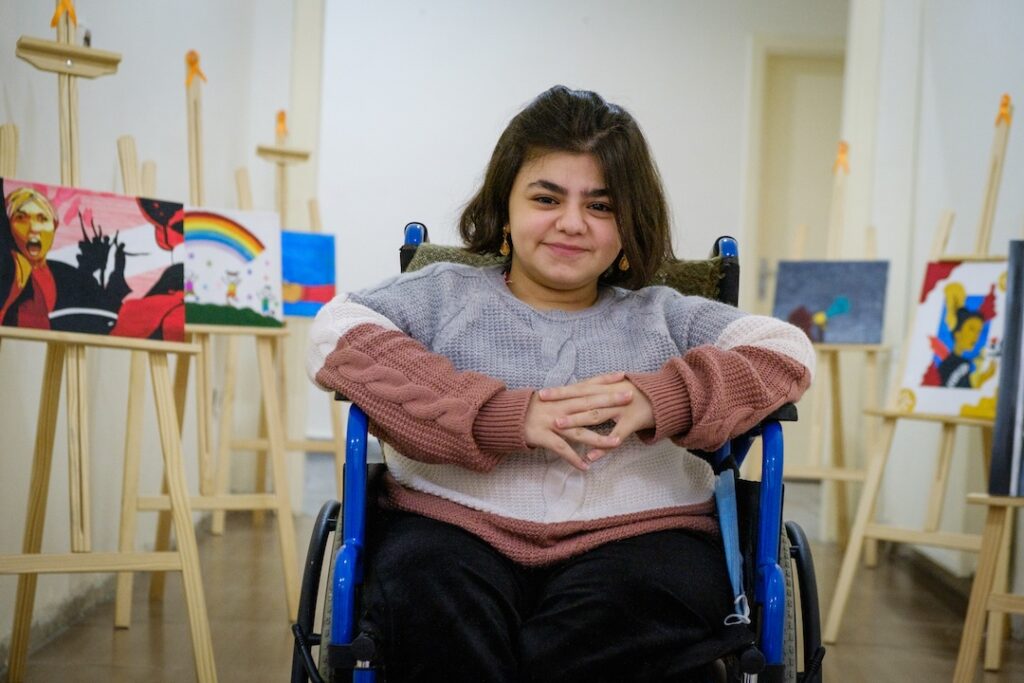
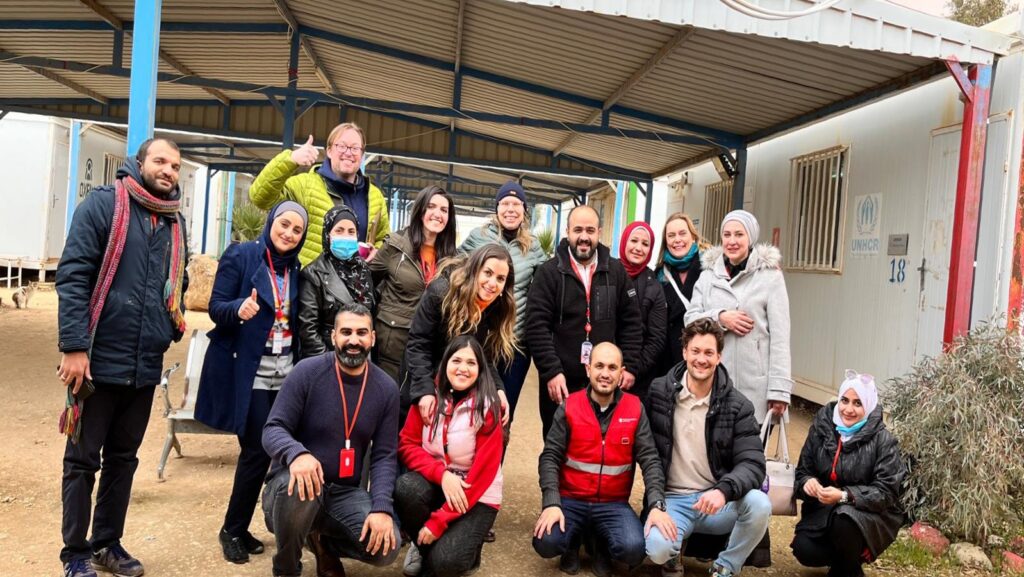
Changes at the government level
During the programme period, we played a pivotal role in improving policies and legislation on child labour. We drove awareness and government commitment to child labour, and we strengthened cooperation between all stakeholders.
Strengthened governmental engagement and accountability: improved policies and legislation
Alliance partners proactively lobbied and advocated for children’s rights and against child labour at the national level. This collaboration resulted in increased cooperation with government agencies.
Our partners used their influence to lobby and advocate with the Child Labour Taskforce, ultimately leading to the development of a new national child labour strategy. The National Child Labour Taskforce met with government officials to discuss and agree on the new child labour strategy.
Jordan has made notable progress in terms of policy and legislation since the programme’s inception. UNICEF’s support to the Government of Jordan has led to the creation of an updated National Child Labour Framework and related Standard Operating Procedures. We have also played our part in the development of the Child Labour Bi-Law, the Child Labour Strategy 2022-2023 and the monitoring of activities under the National Strategy.
During the programme period, the Government and its ministries and agencies became more engaged on the issue of child labour. A speech by the King of Jordan at the 78th session of the United Nations General Assembly emphasized this new sense of awareness, responsibility, and commitment. King Abdullah II of Jordan said that while Jordanians take their duty to ensure a dignified life for refugees seriously, he is worried that the international community is not paying enough attention to the refugee crises and that humanitarian funding is not enough to support refugees. He also highlighted the increased risk of child labour.: “Is the international community going to watch as refugee families find themselves forced to send their children to work instead of school?”
Strengthened multi-sectoral response to child labour cases
The WNCB’s strategy to combat and prevent child labour has focused on working with and between a wide range of stakeholders to achieve the greatest impact. Our presence at the community and government levels has resulted in stronger partnerships between relevant actors, including government institutions, civil society organisations and the private sector. These actors worked together to tackle child labour head on and guarantee the protection of children through community engagement and the empowerment of children, parents and community members.
We worked with the National Council for Family Affairs and the National Child Labour Task Force to ensure different sectors work together more effectively. UNICEF supported the National Council for Family Affairs and the National Child Labour Task Force in working together on key areas such as education, jobs, money, social security and child protection.
The National Child Labour Task Force has improved cooperation and coordination among relevant institutions and strengthened services for child labour cases. The Coordination Platform has been praised for its pivotal role in national coordination. It unites NGOs and government institutions to combat child labour. As members of coordination groups, the National Task Force on Child Labour has succeeded in raising awareness of child labour at the inter-agency and national levels. This has led to a greater coordination of efforts to strengthen services for child labour cases. Another example of strengthening the response to child labour cases is UNICEF’s support to the National Council for Family Affairs (NCFA) in monitoring and reporting on activities to end child labour. Our support helped the NCFA to carry out monitoring visits, meetings and develop a national strategy on child labour.
During the reporting period, the NCFA conducted 17 monitoring visits and individual meetings, two workshops on reporting and two workshops on monitoring, with the participation of 62 government officials (55 per cent women). The NCFA then produced the first annual report on the implementation of the National Child Labour Strategy (2022-2030).
Enhanced protection systems for children
We have strengthened the capacity of the Ministry of Social Development (MoSD) to respond to child labour cases by supporting the establishment of a new Child Labour Case Management Help Desk in Zarqa Governorate. This helpdesk is an integral part of the improved protection systems for affected children.
The helpdesk is now the central point for reporting, tracking and addressing child labour cases. It ensures a timely and comprehensive response to child labour cases, including referrals to multi-sectoral services. Twelve MoSD social workers were trained on standard operating procedures, equipping them with the skills to provide quality, specialised multi-sectoral case management services for child labour cases. This training will ensure they can sustain services to children within the MoSD after our project ends.
Furthermore, 15 Ministry of Social Development staff now have enhanced capabilities in child labour case management and prevention. The National Council for Family Affairs conducted capacity-building training for 12 government officials from the Ministry of Labour, Ministry of Education and Ministry of Social Development on digitising child labour referrals.
During the programme period, the new MoSD helpdesk provided case management and referrals to government and non-government service providers for 21 children involved in child labour in Rusayfa and Zarqa.
